Celebrated Danish restaurant Alouette is reopening in a new home created by David Thulstrup with an enlightening perspective on fine dining. Vogue Scandinavia speaks to Alouette's founder and executive chef Nick Curtin before the reimagined destination swings its doors open again to learn more the new blueprint its presenting to the gastronomic industry, both in Denmark and abroad
There is a legacy in the address of 8 Kronprinsessegade in Copenhagen, whose previous tenants have ranged from famous Danish composers, politicians, artists and literary figures such as Hans Christian Andersen. Now, it will house Alouette 2.0, an ambitious new iteration of the city's beloved Michelin-starred restaurant, that officially swings its doors open tomorrow.
The first version of Alouette was established in 2018 in an unlikely destination, a graffitied building in the industrial outskirts of Copenhagen. It was founded by Nick Curtin as a solo venture following years in esteemed kitchens of New York and elsewhere in Copenhagen, and it was an instant hit, littering gourmet traveller guides and critics' choice lists globally.
However, after six years, Curtin had a sense he had outgrown the space and the purpose of what the building could encompass for them. While the original Alouette locked Curtin firmly on the gastronomic map, it was time for the next chapter: something also unexpected but in a different way. Together his wife and co-founder Camilla Hansen, he approached celebrated architect David Thulstrup to help them visualise what an evolution of Alouette could look like, and in Curtin's words, “we dreamed big!”
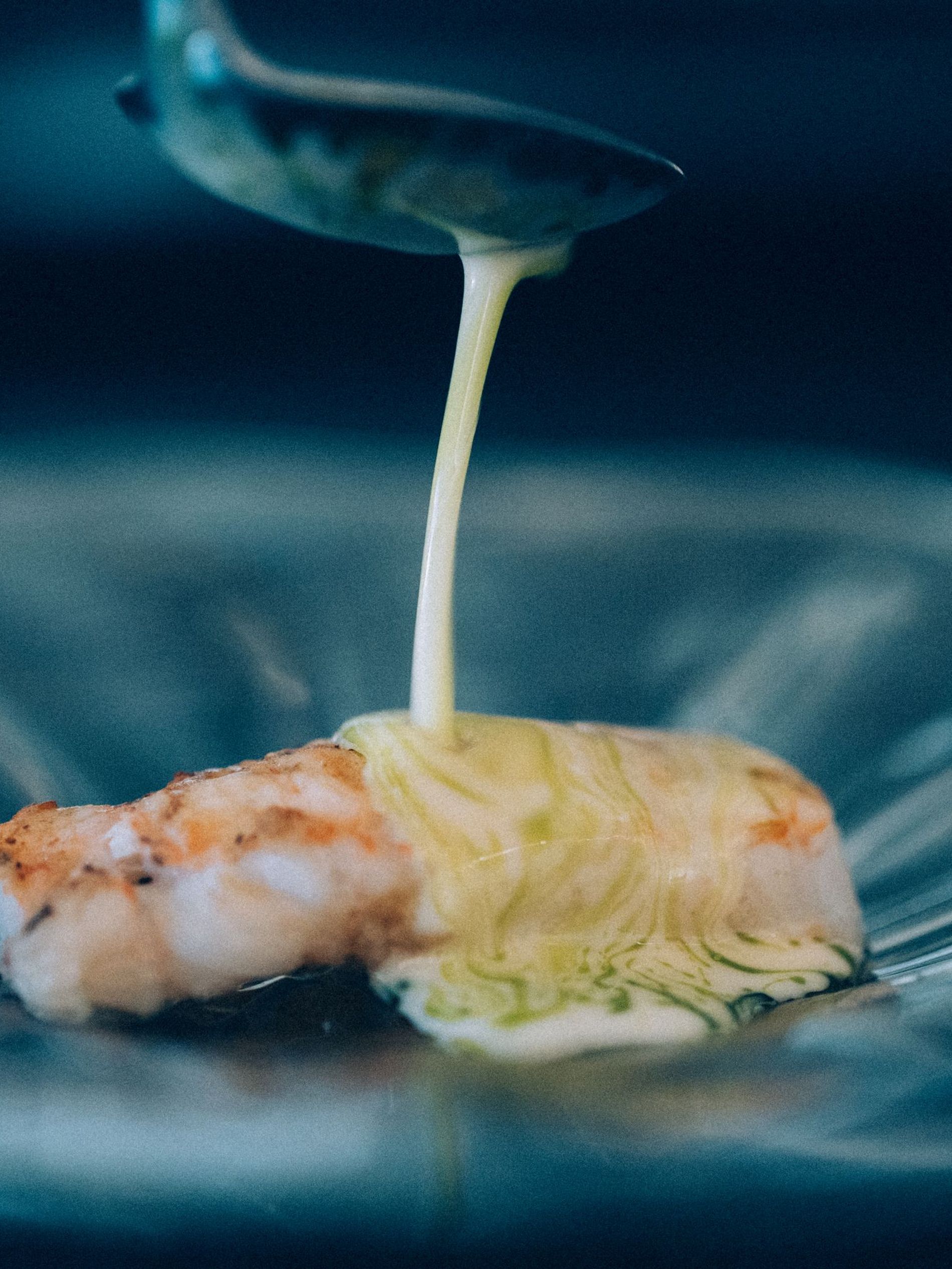
Photo: Gamél / Alouette
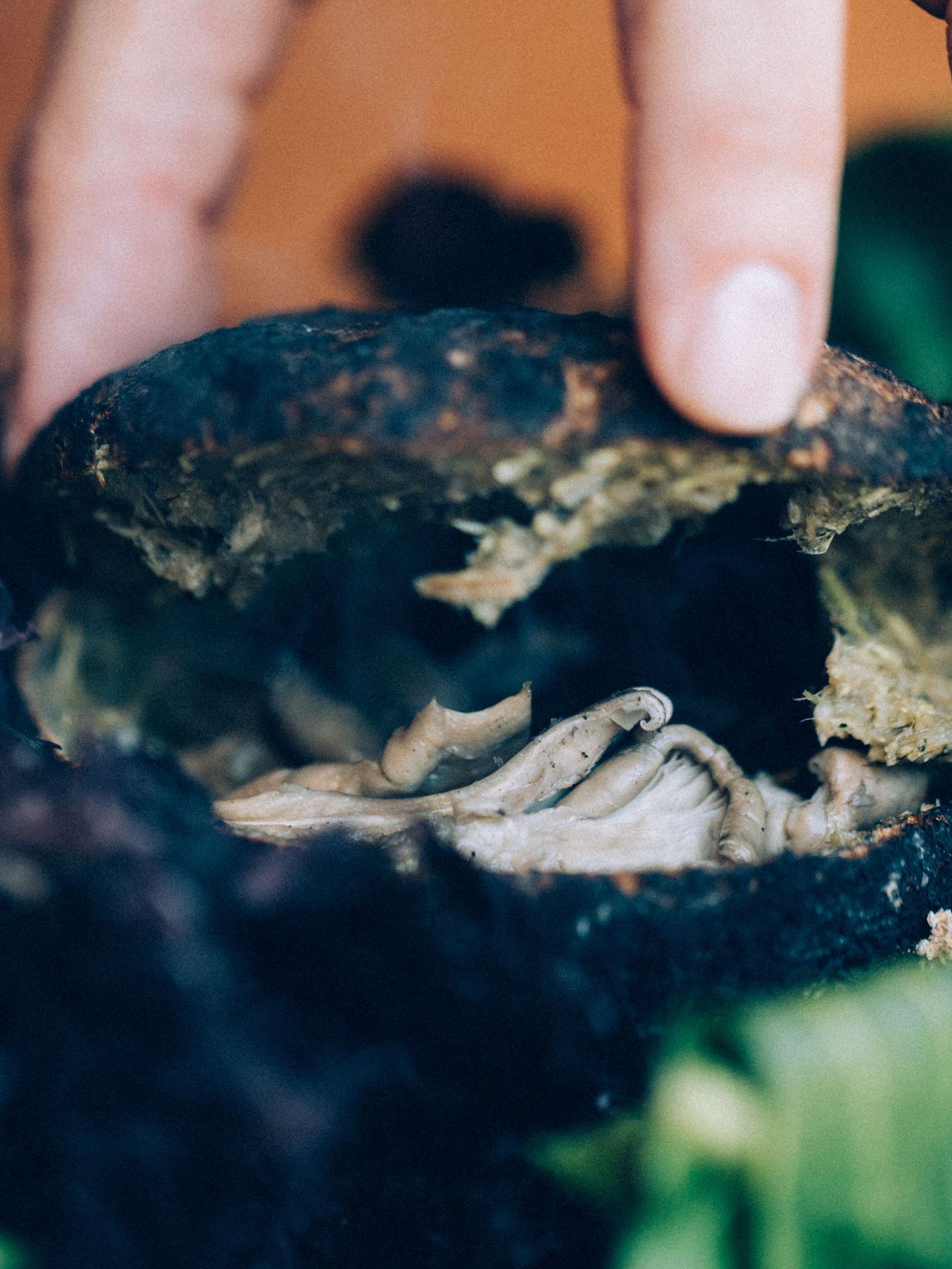
Photo: Gamél / Alouette
It turned out to be the start of a beautiful relationship, with Thulstrup not only understanding the goal of the space but more importantly, Curtin's own values. “He saw the way we wanted people to feel, the things we were doing to try and create this sense of both intimacy and community," Curtin says of Thulstrup's work. "He saw the things that we were, he saw the things that we needed and he saw himself in it. At that point, we were like: ‘How does this work?’ And he was like: ‘I want to create a vision and then we see.’ And we said: ‘Go for it’. Thulstrup did, resulting in a space that Curtin describes as "the most perfect, beautiful platform." "There is an understated drama and sense of journey, he created something so far beyond what we could ever have imagined," he says. "It has been the most magical journey:"
The process wasn't without its own set of challenges, though. Alouette's new home on Kronprinsessegade – one of the most desirable streets in Copenhagen – is heritage-listed, so their renovation or restoration plans came with plenty of bureaucratic obstacles. Plans came to a halt after months of logistical nightmares and, frustratingly, the team had to start over – something which ultimately proved to be a blessing. "What we ended up coming up with is even more beautiful than and more impactful than what we had imagined in the first place,” Curtin says.
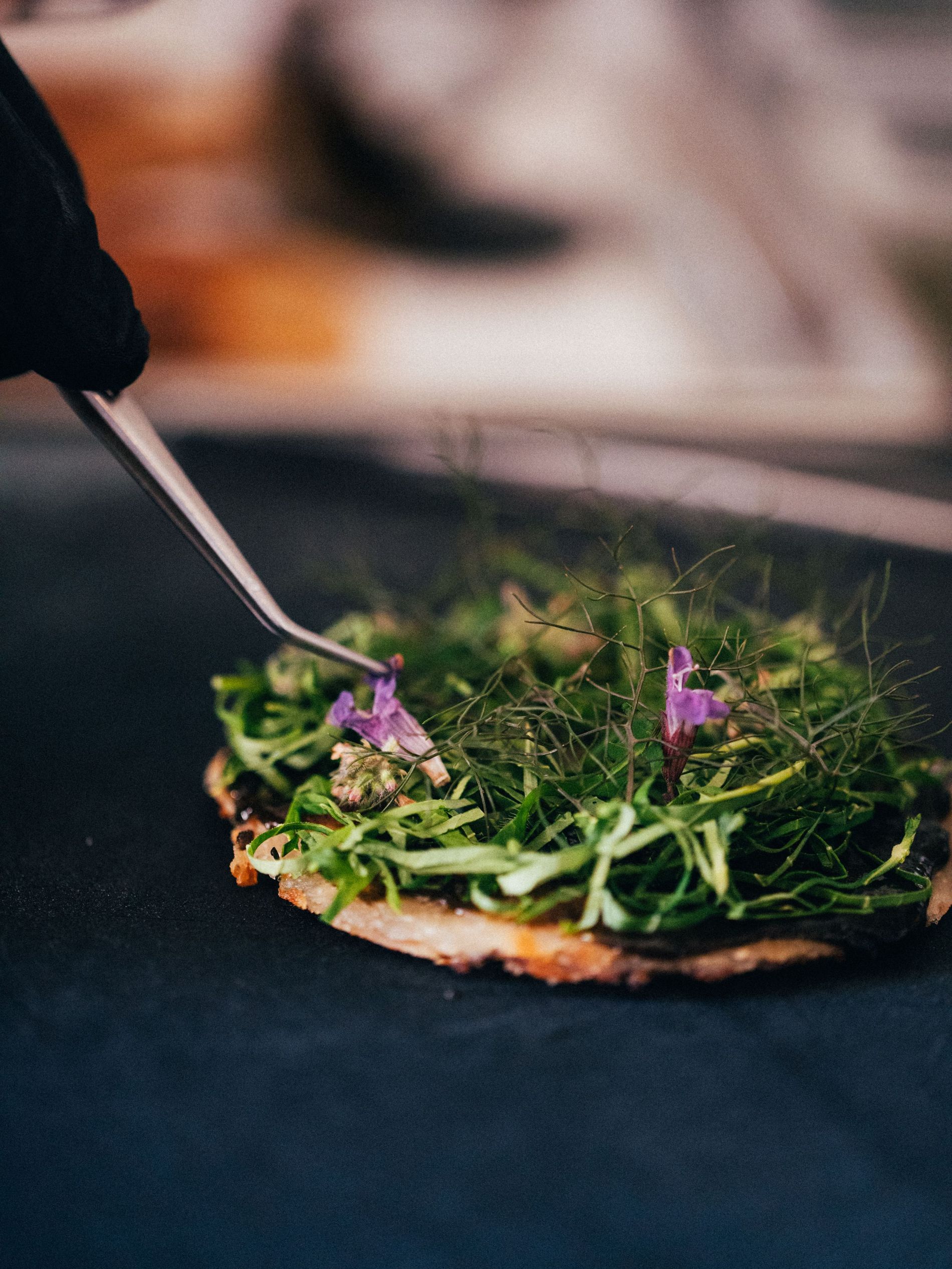
Photo: Gamél / Alouette
The process was soon underway again, with Thulstrup striving to create a space for Alouette that was at once grand and intimate. One key reference point was the majestic natural beauty of stalagmite caves, now reflected in the undulating ceiling of the restaurant's dining room – giving the room an inviting and intriguing dimension. There was never a desire to cultivate a fine-dining restaurant where one is nervous to speak loud or to enjoy oneself properly. As such, a lot of materials, while they are sleek, hold a beautiful materiality to them, bringing textural variation and points of difference across the whole room.
Brushed stainless columns with lights pointing upwards cultivate an illuminated column that keeps the space open but also sectioned into little pockets of dining, noise and chatter amongst the guests, taking away any intimidating aspects of the space and referencing back to these stalagmites that are at once majestic but tie a cavernous space together. Standing strong and impenetrable at the other end is the impressive open kitchen design - in the tradition of Alouette the style is really focused on minimalism, and the materials are let to speak for themselves. Furniture was made by German company e15, while all the glassware from Pernille Bulow and her company Reuse in Bornholm, created from recycling ampules from Novo Nordisk.
Curtin is a man of details, with a mission to streamline service and deliver the most exceptional dining experience – led by a desire to serve food at its perfect temperature. Enter stage left Alouette's new state-of-the-art kitchen by Marrone from Italy. It's centred by a huge black marble island, with a surface that remains at a neutral temperature at one side and heated on the other, so chefs can work on a service that keeps the food heated rather than using overhead lamps. The design is a first for any kitchen, which effectively shaves off valuable seconds in the finessing and service of the dining experience. To the side of the marble island, 'Table 99' is perched – a table with panoramic views of the kitchen that cannot be booked, but rather is kept as surprise seating for last-minute requests each night.
It has been our goal to share these stories and techniques of the people that are doing the real hard work in Denmark: the farmers who are creating, making all the risks and trying new things – and we want to make sure that the consumer understands.”
Nick Curtin, co-founder of Alouette
What Curtin wants to present in the new Alouette is not only a new way of eating, but also of doing business. “Usually in restaurants you have this top-down structure - we don’t really believe in that process. It actually creates more harm than it does good. It makes us less versatile and it kind of lends itself to toxic environments and it makes a very static system." Instead, Curtin created a more malleable and balanced environment, inviting his team to collaboratively contribute to the new menu – seeking great concepts rather than finished dishes. “Nobody expects you to sit down and tell us about your perfect idea," Curtin says. "We are going to edit this about four hundred times before next week and then we’re going to put all of our hands in it and edit it four hundred times again. When guests see it, it will have started as an idea and ended as something completely different."
It is not only in the kitchen that Curtin is looking to reformulate tired structures. Alouette's true star dish is its focus on the value chain - tracing right back to the farmers and spotlighting their work, outputs and processes: “It has been our goal to share these stories and techniques of the people that are doing the real hard work in Denmark: the farmers who are creating, making all the risks and trying new things and we want to make sure that the consumer, our guest, but also the public at-large understands”. This has always been a fundamental focus of Alouette from the start, but it will be given new perspectives on the anticipated menu of the new location: “for quite some time we have been using our dishes to communicate some of the regenerative and circular farming systems that a lot of our local farmers are using to talk about the diversity of product.”
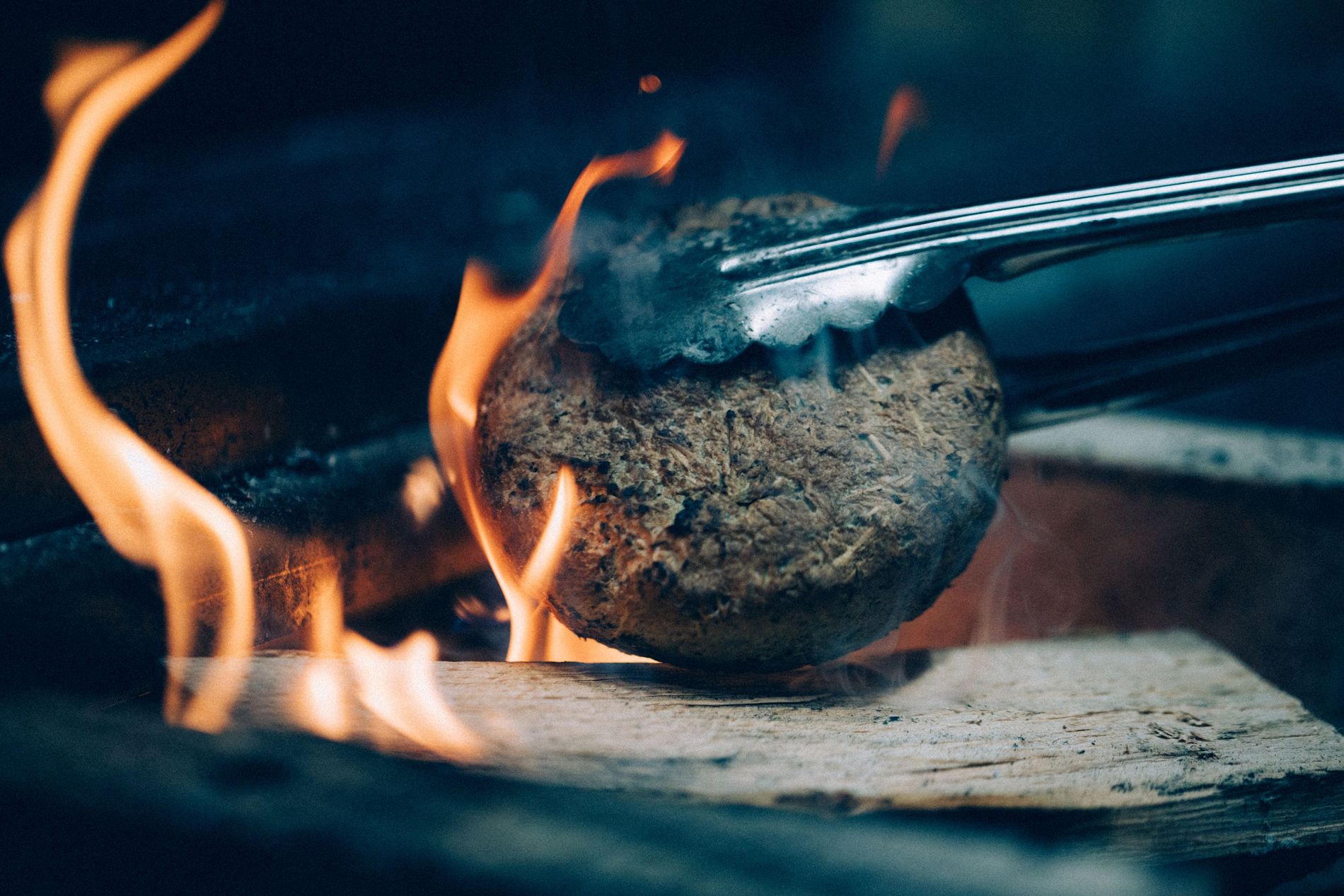
What guests will experience will be a menu broken up into four narratives, each encompassing a plot of land and with each plot like a mini menu. Each plot is based on one product, on one farm and is a series of anything from one to four dishes of different sizes, formats that are meant to encapsulate that product or farm. As Curtin notes, “If we are going to do asparagus, we have the opportunity to experience different varietals of asparagus from one farm or perhaps the same varietal of asparagus from different farmers from different parts of Denmark to talk about. If we had one type of asparagus this is how we can experience it in different soil types and different raising methods and growing methods.” Their aim to educate their visitors about incredible examples of food producers in Denmark is focussed through reinforcing any narrative with a sensation - and that is where the dishes step in.
His core team he rolled over from the original restaurant spent seven months researching, developing, exploring and most importantly visiting every single one of their farmers and producers in their Rolodex. With all this information, Camilla compiled it all into one online resource for the team, so they can utilise and access at any point in their creative or narrative process. As Curtin notes: “We use this resource as a way to convey the people and the methods that stand behind this farm, the purpose that drives them, and it is all in one sheet created by the team members. We have like a forty-page document on farms that we use on how they do things and how they grow things and it is amazing to see the amount of passion and understanding that our team put into exploring these farms and asking very pointed questions.”
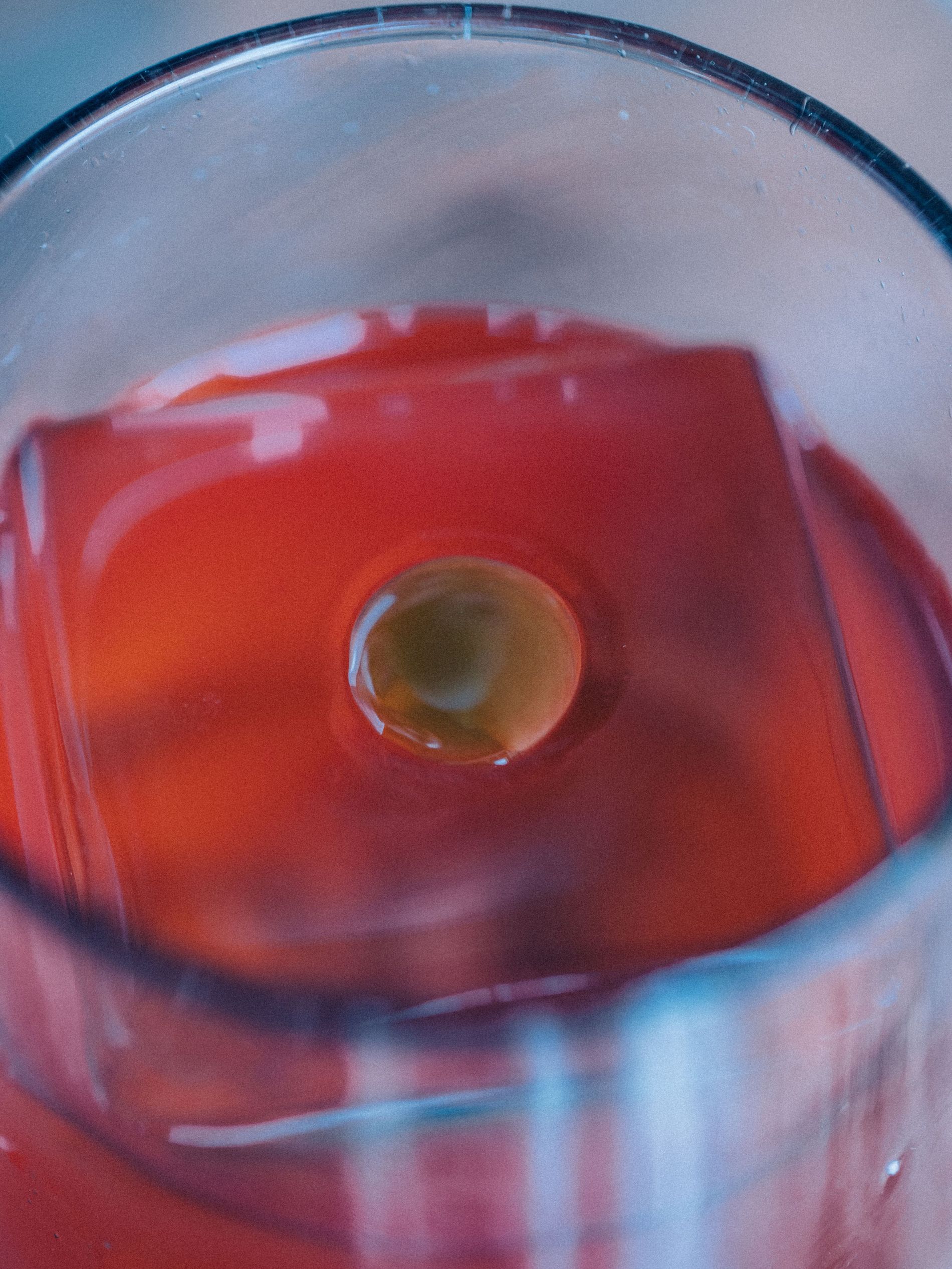
Photo: Gamél / Alouette
What the Alouette fine diner will not lose in all this admirable focus on Danish produce is the sense of fun. Playfulness will be present heartily throughout, with each plot beating to its own rhythm, and the ever-present retaliation of ‘why not’ never too far from Curtin's thoughts. “You could come today and have one experience and you could come in a month and the entire pacing, the entire structure, the entire dynamic can feel almost entirely different because we have chosen to change one plot."
A key takeaway from the new Alouette is that food, to Curtin, is a shared language that everybody speaks. The levels to which differ, but it is a dialect all understand. With the opportunity this offers, Curtin finds it an obligation for him, an incredibly powerful mission to change the way people experience food. As Curtin concludes, “What we do is important. Restaurants convey ideas and emotions better than almost anything because you are activating people at almost every level. Taste, touch, you are immersing people in a space where they can form these incredibly significant and long-lasting memories that can influence the way that they think about food. We get to break bread. It is one of these fundamental elements about being human. The creation of cooking food over fire and agriculture are key moments in the evolution of humanity, so, we have to celebrate those things, right?”
The new Alouette will ask its guests to break bread with them, and usher in a new way of experiencing food, along its production, preparation and presentation. A mighty undertaking, but one Curtin and Hansen are more than capable of mastering.
